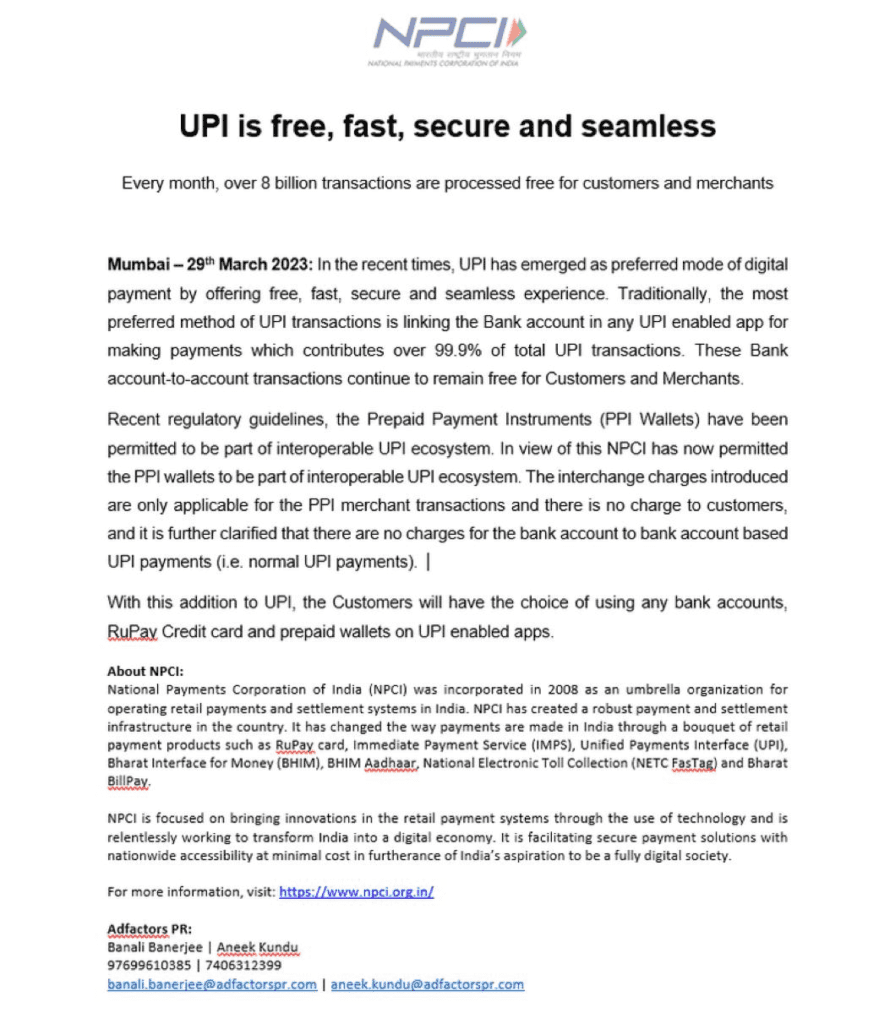
In the recent times, UPI has emerged as preferred mode of digital payment by offering free, fast, secure and seamless experience. Traditionally, the most preferred method of UPI transactions is linking the Bank account in any UPI enabled app for making payments which contributes over 99.9% of total UPI transactions. These Bank account-to-account transactions continue to remain free for Customers and Merchants
Recent regulatory guidelines, the Prepaid Payment Instruments (PPI Wallets) have been permitted to be part of interoperable UPI ecosystem. In view of this NPCI has now permitted the PPI wallets to be part of interoperable UPI ecosystem. The interchange charges introduced are only applicable for the PPI merchant transactions and there is no charge to customers, and it is further clarified that there are no charges for the bank account to bank account based UPI payments (i.e. normal UPI payments). With this addition to UPI, the Customers will have the choice of using any bank accounts, RuPay Credit card and prepaid wallets on UPI enabled apps.
National Payments Corporation of India (NPCI) was incorporated in 2008 as an umbrella organization for operating retail payments and settlement systems in India. NPCI has created a robust payment and settlement infrastructure in the country. It has changed the way payments are made in India through a bouquet of retail payment products such as RuPay card, Immediate Payment Service (IMPS), Unified Payments Interface (UPI). Bharat Interface for Money (BHIM), BHIM Aadhaar, National Electronic Toll Collection (NETC FasTag) and Bharat
NPCI is focused on bringing innovations in the retail payment systems through the use of technology and is relentlessly working to transform India into a digital economy. It is facilitating secure payment solutions with nationwide accessibility at minimal cost in furtherance of India’s aspiration to be a fully digital society.


